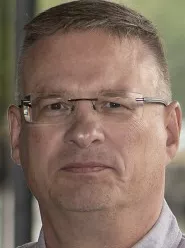Jyri Manninen: Is continuous learning the biggest threat to lifelong learning?
People get inspired by trendy buzzwords. However, getting carried away with the concept of continuous learning may change liberal arts courses into a mere support service for developing the world of work.
In the 1970s, an amusing observation about ‘open learning’, a buzzword at the time, was made in a report by UNESCO:
"...an imprecise phrase to which a range of meanings can be, and is, attached... It eludes definition. But as an inscription to be carried in a procession on a banner, gathering adherents and enthusiasts, it has great potential."
The current buzzword in Finland is ‘continuous learning’. The quote from UNESCO’s text is a very fitting description for it as those now marching behind the banner have found an entirely new kind of enthusiasm for the development of adult education. Which is good. There are deficiencies in the professional competence of working-age people, one half of the adult population does not take part in organised adult education during the year, and participation accumulates according to people’s educational level and professional position.
However, there is a perfectly clear definition for continuous learning: developing the work-related competence of working-age people. With their enthusiasm, many forget this definition, which in turn leads to some problems or at least some strange phenomena.
LIKEABLE ENTHUSIASM ABOUT ADULT EDUCATION
The new enthusiasm about adult education is slightly strange, but likeable. Those who are a bit older remember that this is by no means the first attempt to make the world a better place. Exactly the same kind of development work has been done since the 1950s, inspired by different concepts at different times. You can generate concepts yourself by combining the defining words ‘continuous, recurrent, lifelong and periodic’ in different ways with the terms ‘education, training and learning’.
Year 1996 was the European Year of Lifelong Learning. The Finnish Noste programme (2003–2009) was aimed at raising the competence level of the part of the workforce that had no qualifications and a Charter on Lifelong Learning was defined for universities in 2009.
An interim period then followed, during which efforts were made to actively forget lifelong learning and the entire concept of it. For example, the positions investing in lifelong learning in the Ministry of Education and Culture and in the Finnish National Agency for Education were terminated, the Council for lifelong learning in the Ministry was discontinued after 2015, the training programmes for adults in vocational education and training were terminated, and cuts were made to the adult education allowance. As a result, participation in adult education fell by as much as 5% in 2017, for the first time in 35 years. Participation in hobby-related adult education saw an even greater decline (for women, from 26% to 19%, and for men, from 11% to 9%). Furthermore, as from 2008, universities started to wind down their continuing education centres, the best ones in Europe, which they had been developing with great effort since the 1980s.
Now there is a race to reinvent the same wheel as ‘continuous learning’ has been integrated into the funding model of universities. Money seems to be a good motivation for returning the study opportunities of adults.
CONTINUOUS LEARNING – A THREAT OR AN OPPORTUNITY?
So why would continuous learning be a threat to lifelong learning? Because continuous learning limits the perspective and development only to working-age people and to education and training related to work, whereas lifelong learning covers all age groups from infants to grandparents and all kinds of learning – so-called life-wide learning – and also includes general and hobby-related studying and learning, and community education. If we forget these differences or mix up the concepts, the whole country will suffer – including the world of work.
Problems arise when actors and players in the field of education and education developers get carried away with using the new concept without knowing what it means or use it as a synonym for lifelong learning and as a basis for developing adult education. The ‘continuous learning’ reforms of universities also have some features that point in the direction of ‘continuous studying’ when they mainly focus on extending the rights to study.
The strong emphasis on the world of work may also lead to liberal arts suffering or being narrowed down to a support service for the development of work-related competence. It also excludes other general education, community education, the training activities of NGO's, the university of the third age and other activities that do not fit into the narrow definition of continuous learning (or into the funding model). The traditional Finnish view of general knowledge and education (folkbildning) is being replaced by continuous studying.
It is also amusing to see how people in the field of education and even at the level of administration get mixed up about the concepts. For example, the Association of Finnish Local and Regional Authorities enthuses that “continuous learning is competence and creativity throughout life”. And a course in ‘visual arts with an emphasis on continuous learning’ is offered in liberal adult education.


Jyri Manninen is Professor of Adult and Continuing Education at the University of Eastern Finland. He has conducted research on the benefits of liberal adult education, learning environments, participation in adult education and the effectiveness of education. He has also had a long career in different teaching and training positions at the Universities of Helsinki and Eastern Finland and in their open universities and continuous education units.
Kuva: Varpu Heiskanen, UEF
The text was originally published in Finnish in the blog of the Freedom and Responsibility of Liberal Adult Education programme on 12 January 2021. EPALE Finland is responsible for the translation of the text.
The Freedom and Responsibility of Liberal Adult Education (SVV) programme will be publishing a blog by the name Sivistystori in 2021. In the blog, researchers and experts of liberal adult education and SVV’s partners with an interest in general knowledge and education write about educational work and the importance of general knowledge and education in society. The blog will be published on SVV’s website approximately once a week.
Text: Jyri Manninen
Comentário
lifelong learning
Me preocupa especialmente la
holistic view on learning is needed
Thank you for your comment! I
I would go even further
A volunteer who manages the social media presences of a club can take advantage of open learning opportunities, maybe she books a some-day social media course, maybe she deepens her knowledge with a certificate course. Or she may find help and inspiration in sharing with others on social networks. Informal, networked learning can thus provide access to formal continuing education - but it's not a must for learners. That's a big difference. And if learning "only" serves to make people feel comfortable, then any society is already greatly benefited.
Thank you for your great post.
It made me think of the UIL report "Embracing a culture of lifelong learning".






Route towards well-being